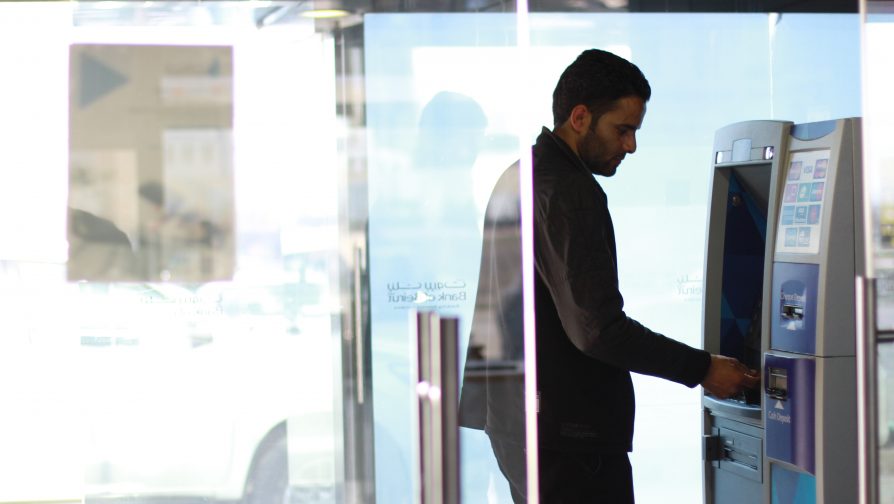UNHCR’s cash assistance programme, generously funded by donors such as ECHO, provides a lifeline for refugees by allowing them to meet their most basic needs.

Syrian refugees Hussein (70) and Mariam (58) sitting in the porch of their tent in an informal settlement in the Bekaa, Lebanon. (c) UNHCR/Elie Fahed
Six years into the Syrian crisis, over one million refugees continue to live in Lebanon. With limited access to income-generating activities and dwindling –if not exhausted- savings, refugees’ vulnerabilities continue to increase. More than half of the Syrian refugee population in Lebanon live below the extreme poverty line, and 90 per cent are in debt. In this context, UNHCR’s cash assistance programme, which has been generously funded by donors such as ECHO, provides a lifeline for refugees by allowing them to meet their most basic needs.
[Beirut, 20 June 2017] In an informal settlement in East Bekaa’s Dalhamiye, Hussein and his wife Mariam greet visitors with a smile despite the visibly difficult conditions they are living in.
Four years ago, the couple were forced to leave Syria and seek refuge in Lebanon along with three of their five children. Their two eldest sons were not fortunate enough to escape the violence. They died in the war.
“Leaving Syria was one of the most difficult decisions I have ever had to make,” sighs Hussein.
But fleeing the bombing was not the end of this family’s ordeal, as life in exile has been fraught with difficulties.

View of Dalhamieh informal settlement in East Bekaa, Lebanon. (c) UNHCR/Elie Fahed
Not long after finding a place to stay at an informal settlement, Mariam developed an ear condition. Unable to afford the necessary treatment, she irrevocably lost her hearing.
Months later, Mariam and her family were faced with an even greater loss. A tragic accident claimed the life of Hussein and Mariam’s ten-year-old daughter.
“It has been such a difficult journey,” says Hussein. “Life as a refugee in Lebanon is extremely tough.”

Hussein talks about his 10-year-old daughter, who lost her life in an accident. (c) UNHCR/Elie Fahed
As physical disability and old age make it impossible for this couple to find work opportunities, they are compelled to rely on their two remaining sons for financial support. The children, whenever they find an opportunity, work in agriculture to put food on the table.
Hussein and Mariam’s family is one of the thousands of severely vulnerable refugee households living in Lebanon. In fact, more than two thirds of Syrian refugees in the country live below the poverty line, with over half living in extreme poverty.
UNHCR’s cash assistance programme provides a monthly sum of USD 175 to severely vulnerable refugees in order to help them meet their basis needs such as rent and medical care.
“Without this support, the situation would be catastrophic,” says Hussein.

Issa with his daughter Allisar, 4 and his son Ali, 7. (c) UNHCR/Elie Fahed
In the same informal settlement, Issa, a 30-year-old father of two, sits in his small tent’s living room. He moved to Dalhamiye three years ago with his family and elderly parents.
Like most refugees, he is unable to find a stable job. The only work opportunities he can get are in agriculture or construction, and only seasonally.
Cash assistance has helped him cover some of his household’s basic expenses, he explains, including daily medicine for his elderly father, diapers for his young daughter and rent.
While Issa talks, his son Ali listens carefully. The seven-year-old can now say a few words in English, which he learned at school, and this makes his father’s eyes gleam in pride.

Little Alissar sits on her father’s laps while he show the ATM card through where he receives monthly cash assistance. (c) UNHCR/Elie Fahed
Due to difficulties in finding the means to support their families, the vast majority of refugees incur debts, mainly borrowing money from Lebanese landlords, shop owners, friends and relatives to buy food, pay for rent and cover health expenses, among others.
Significant funding from European Commission Humanitarian Aid and Civil Protection (ECHO) to UNHCR’s multipurpose cash assistance programme has contributed to supporting a total of 30,000 severely vulnerable families for a period of 12 months.

Issa withdraws his monthly cash assistance at an ATM point. (c) UNHCR/Elie Fahed
Once a month, Issa receives a text message from UNHCR notifying him that the money has been uploaded to his card. As soon as he receives the message, he goes to the nearest ATM machine and withdraws the cash.
“I know that my husband is less worried thanks to the support he gets,” Issa’s wife says. “This makes me feel relieved.”

Issa holds the ATM card to his forehead. “It is truly a great blessing,” he says. (c) UNHCR/Elie Fahed
Holding the card to his forehead, Issa laughs and says this is what his wife does each time they receive the SMS. “She takes the card, kisses it and puts it on her forehead while praising the Lord. It is truly a great blessing.”
With generous contributions from donors like ECHO, UNHCR’s multipurpose cash programme has been helping thousands of families in situations similar to Issa’s. Continued and sustained support to the most vulnerable refugees remains vital, as it allows them to meet their basic needs and live a more dignified life.
شارك على الفيسبوك شارك على تويتر